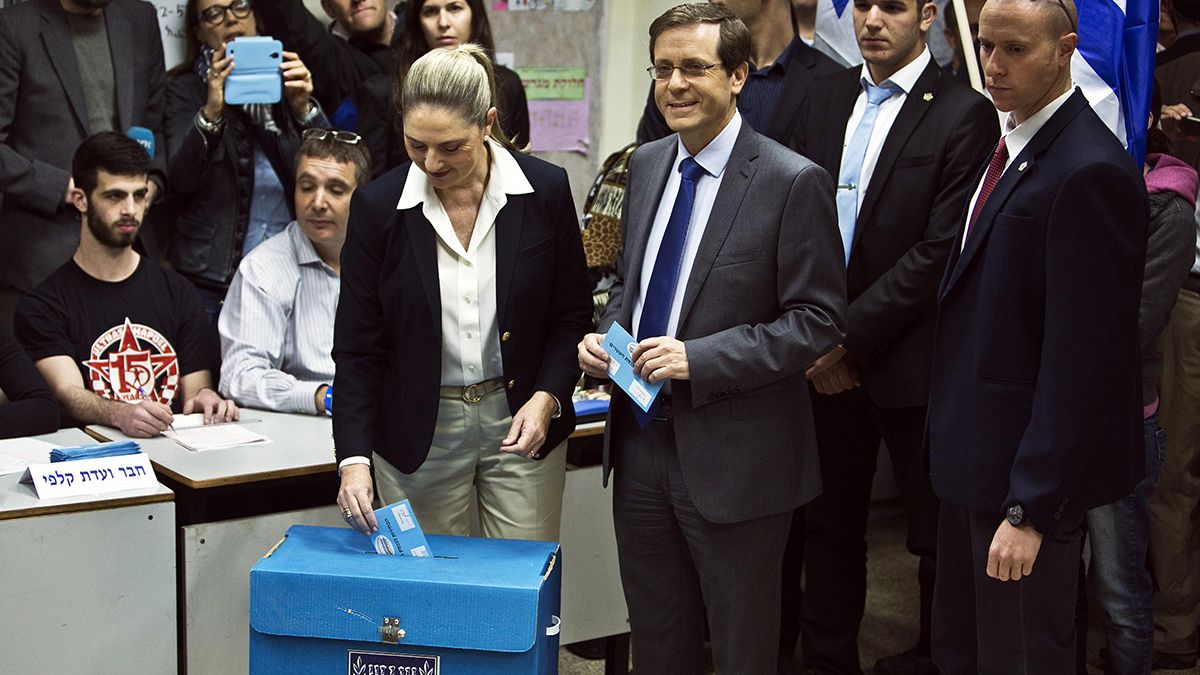The leaders of both main parties have voted in Israel's parliamentary election. Prime Minister Benjamin Netanyahu of Likud vowed he would form the next government, while Isaac Herzog of the Zionist Un
The Israeli prime minister Benjamin Netanyahu has voted in the country’s general election, fighting to stay in office for a fourth term.
The last opinion polls put the centre-left opposition in the lead but all will depend on potential coalition partners.
Casting his ballot at a school in Jerusalem, the prime minister vowed that he would form what he called a “national government” – meaning right wing – and that there would be no union with the left.
He acknowledged that his opponents’ lead had widened.
“To prevent the rise to power of a left-wing party, there is only one thing to do – close the gap, and vote for Likud,” the prime minister said.
Evidence suggests many Israelis are tired of Netanyahu’s focus on national security and Iran’s nuclear programme. He has warned of the dangers of a leader who might yield to Palestinian statehood or nuclear diplomacy with Tehran.
Herzog’s threat
Netanyahu’s rival Isaac Herzog, co-leader of the Zionist Union with ex-peace negotiator Tzipi Livni, have made headway by concentrating on social issues and the economy.
Herzog is also promising to improve relations with the Palestinians and repair Israel’s damaged ties with the US.
“What I want is change, hope and indeed everything that can be good for Israel and if I get the mandate (to form government) I will work to have the best government for Israel,” Herzog told reporters after casting his ballot.
On Monday it was announced that Livni would no longer share the premiership with Herzog on a rotating basis if the Zionist Union won the election, cancelling a previous agreement.
The election was triggered by Netanyahu in December, after his dismissal of two ministers prompted the collapse of his coalition.
Despite his precarious position in the polls he may find more natural potential partners if the new parliament tilts to the right.
In his latest electoral move on Monday, he vowed there would be no Palestinian state if he won a fourth term.
Voters’ concerns
Two weeks ago Netanyahu tested already strained relations with Obama administration by outlining his opposition to nuclear negotiations with Iran in a speech to the US Congress.
One opinion poll found that most Israeli voters were unmoved while a minority said they were less likely to back him over his open defiance of Washington.
Israeli journalist and blogger Tal Schneider told euronews:
“We felt and we experienced a rise in the price of housing and goods in the last five, six years and that is all people talk about… Obviously we are eight months after a devastating war (in Gaza) so they do talk about security issues, but they hardly talk about the Iranian issue. That was a thing put on the agenda by the prime minister.”
With neither side tipped to win anywhere near a majority, lengthy coalition negotiations are likely.
